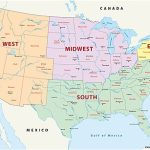
The UK economy stagnated in February after civil service and teachers’ strikes hit output in the services sector, official figures show.
Gross domestic product (GDP), the main measure of output, rose by a revised 0.4 per cent in January after a 0.5 per cent decline in December, according to Office for National Statistics figures. GDP rose by 0.1 per cent in the three months to February.
An upward revision to economic growth at the end of last year put GDP at 0.1 per cent higher in the final quarter. The Office for National Statistics had originally said that output was flat over the final three months of 2022.
City economists predicted that output would rise by 0.1 per cent in February, but that average growth in output over the past three months would come to a 0.1 per cent decline.
Output in the public sector, particularly in education, dropped in February following teachers’ strikes, which pushed pupil attendance as low as 43 per cent on strike days.
A decline in output in services and production offset a 2.4 per cent rise in construction output. The sector returned to growth in February after a 1.7 per cent drop at the start of the year.
Darren Morgan, the ONS director of economic statistics, said: “The economy saw no growth in February overall. Construction grew strongly after a poor January, with increased repair work taking place.
“There was also a boost from retailing, with many shops having a buoyant month. These were offset by the effects of civil service and teachers’ strike action, which impacted the public sector, and unseasonably mild weather led to falls in the use of electricity and gas.”
Yael Selfin, chief UK economist at KPMG, said the economy is likely to escape a recession, which is defined as two consecutive quarters of negative growth, but a period of stagnation awaits. “Economic activity will remain subdued in the near term as households continue to be squeezed by elevated prices and the cumulative impact of past interest rate increases,” she said.
“Although business sentiment continues to improve, bolstered in part by the fall in wholesale energy prices, we expect investment to be constrained this year amidst the tightening in credit conditions and uncertainty about future policy direction.”
The chancellor, Jeremy Hunt, said: ““The economic outlook is looking brighter than expected — GDP grew in the three months to February and we are set to avoid recession thanks to the steps we have taken through a massive package of cost of living support for families and radical reforms to boost the jobs market and business investment.”
The Office for Budget Responsibility, the official forecaster, last month upgraded its forecasts to predict that the UK would avoid a recession this year following the sharp fall in natural gas’s prices over winter.
Read more:
UK economy showed no growth in February






